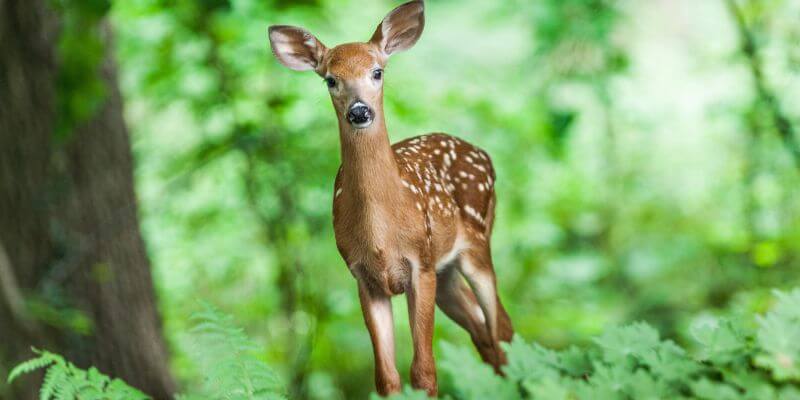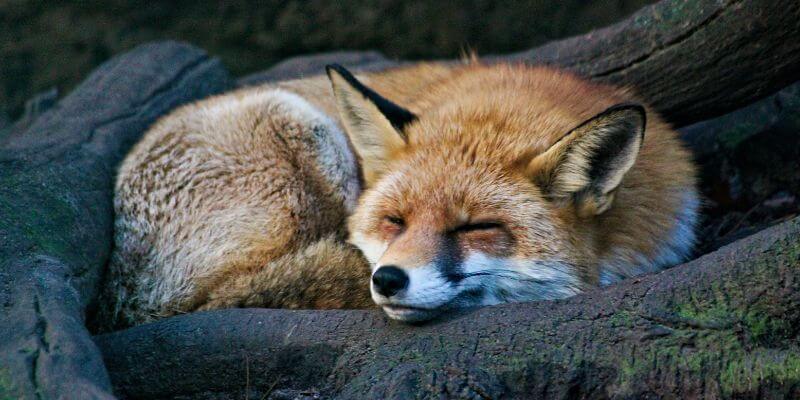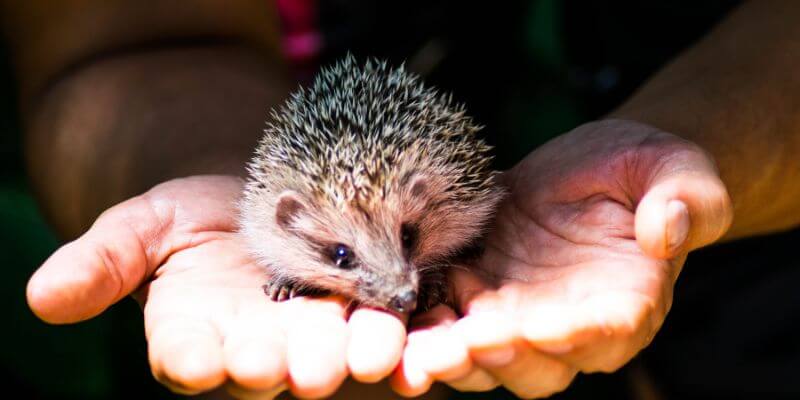If you love animals then there’s no doubt all you would want to see is them thrive and live a happy and healthy life. As a pet owner, we are better positioned to make this a reality, but when it comes to wildlife, these animals face any number of challenges on a daily basis.
Thankfully, there are dedicated professionals who commit their working lives to giving wild animals a helping hand. British Wildlife Rehabilitators take on wild animals that are unwell, injured, or orphaned, nursing them back to a fit state through rehabilitation, then returning them to their natural habitats.
If you’re passionate about helping animals, perhaps you should consider a career as a Local Wildlife Rehabilitator.
Why Is There A Need For Wildlife Rehab?

While they are resilient, independent animals, wildlife sadly can become vulnerable when injured or experiencing an illness. Domestic animals in this instance would receive the necessary care from a Vet, and then have their owners help in getting back on their feet.
Wild animals don’t have this luxury, so their reintegration into everyday life can be much more of a challenge. Thankfully, British Wildlife Rehabilitators are trained to understand the ecology and behaviour of British wildlife species. Therefore, they can appreciate how different animals behave, their usual habitats and the typical challenges they face.
All of this makes Wildlife Rehabilitators better equipped to nurse animals back to good health and mobility, ahead of releasing them back into the wild.
Annual Animal Road Casualties In The UK
Awareness events like Road Safety Week can really shed light on just how dangerous things can be for wild animals, especially near man-made environments. UK roads are just one example of a human-imposed threat to animals, with a staggering number of casualties occurring every year.
The Mammal Society estimate that annual road casualties in Britain account for the loss of:
- 100,000 foxes
- 100,000 hedgehogs
- 50,000 badgers
- 30,000-50,000 deer
And sadly, so many more. Thankfully, British Wildlife Rehabilitators are on hand to help those who survive.
What Does A Wildlife Rehabilitator Do?
Anyone who works in wildlife rehab has one purpose; to get animals well again and return them to the wild. However, this process can be lengthy and involve a number of treatments.
As a British Wildlife Rehabilitator, you will often work closely with Veterinarians to make sure the animals in your care are getting the treatments they need to get back to good health. You will also typically work within a wildlife rehabilitation centre which could either be run independently or be part of a larger organisation. Depending on where you work, you might just help rehab wildlife of a certain species or wild animals of all types!
Overall, you can expect the roles and responsibilities of someone working in a British wildlife rescue centre to include:
- Evaluating the condition of animals and identifying any injuries
- Administering medications
- Working with Vets to create a treatment plan
- Keeping records on the progress of animals receiving rehabilitation
- Meeting the animal's nutritional needs and keeping their environments clean
- Slowly reintegrating animals into their natural habitats
- Checking on rehabilitated animals after their release

What Do You Need To Be A Wildlife Rehabilitator?
Many people ask the same question, ‘do you need a license to rehabilitate wildlife?’, the answer to which is currently ‘no’, but it’s always wise to complete relevant training.
Anyone working with wild animals in this way will need to understand how to properly handle and restrain them so as not to cause injury to the animal or themselves. This is in addition to understanding the health and welfare needs of a vast array of species, the legislation surrounding the care of wild animals in the UK, animal first aid, and so much more.
By getting trained and qualified in this area of animal care, you’ll become a more favourable candidate for wildlife rehabilitation jobs as employers will be able to see you have the skills to hit the ground running.
There is a vast number of organisations and charities that work in this area, such as the British Wildlife Rehabilitation Council and the RSPCA, all of which need the support of educated and trained professionals.
We explore in more detail some of the best ways to get educated and experienced ahead of a role in wildlife rehab below.
Study Wildlife Rehabilitation Courses Online
By far the quickest and most convenient way to get educated ahead of a Wildlife Rehabilitator career is to study British wildlife rehabilitation through an online course.
The learndirect Digital Group’s Level 3 Diploma in British Wildlife Rehabilitation Studies explores everything you need to know to effectively rehabilitate the vast array of British wildlife species, including essential handling and restraining methods, and capture and release techniques.
This online wildlife rehabilitation course includes 7 fascinating units, all of which equip you with the knowledge required to assess and treat British wild animals that are suffering from injuries.
These include:
- Hygiene Requirements and the Health of British Wild Animals
- Principles of Handling and Restraining British Wildlife Species
- Legislation and Agencies Relevant to British Wildlife Rehabilitation
- Principles of First Aid for British Wild Animals
- Principles of Assessment and Treatment of Injured Wildlife
- Principles of Wild Animal Capture and Release Techniques
- Principles of Monitoring and Recording British Wildlife Species
As this course is completely online, you can study when and where it suits you. This makes the transition into a British wildlife rehabilitation career much more feasible, as you can requalify around your existing commitments with ease.
Get Experience With Wild Animals
In addition to having Wildlife Rehabilitator qualifications, getting experience with wild animals is also a really good way to make yourself more appealing when applying for jobs in this line of work. A lot of what you will be doing takes confidence, so showing you’re used to working with animals of all kinds is a great way to impress employers.
Once you’ve completed your wildlife rehab courses, try to get a voluntary position that will complement your future career.
A few ideas would be working within:
- Aquariums
- Conservation centres
- Rescue centres
- Safari parks
- Zoos
The British Wildlife Rehabilitation Council (BWRC) is a charity run by volunteers, so approaching them would be the perfect way to support wildlife that is in need of assistance.
Complete A Wildlife Rehabilitation Degree
Studying a degree related to wildlife rehabilitation would be another excellent way to get trained for this career, or deepen your knowledge to progress into other jobs in wildlife welfare. You could study anything from animal science to conservation and ecology, all of which could enhance your wild animal rehabilitation career prospects.
Many people who get started as a Wildlife Rehabilitator through our online British Wildlife Rehabilitation Diploma decide to further their education through a degree to advance their knowledge and career. Our Level 3 Diploma also facilitates this move as it provides you with 24 UCAS Tariff Points upon completion.

Start Working Towards A Wildlife Career Today!
You can take your love of animals into an important and rewarding career by learning how to protect and support wildlife through our convenient online course.
Find out more today by viewing the course on our website, or by speaking to our Course Specialists for more information. Contact them now on 01202 006 464 speak to them online.
Alternatively, if you’re ready to start a rewarding animal career but don’t know which path to take, click the link to download our FREE animal course brochure below and find the course that suits your goal.



















